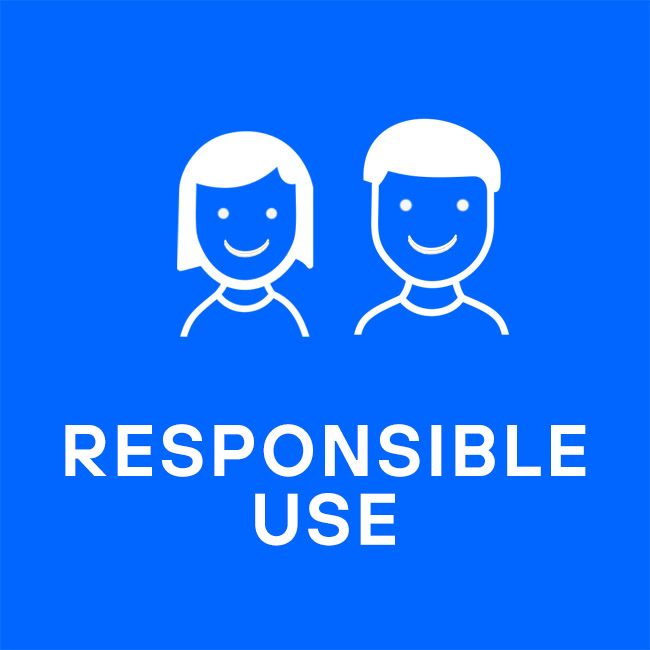Our Business Principles define our management model and can be applied to our entire value chain. More specifically, they guide our relationship with customers, suppliers and employees to build a strong engagement based on trust.
Responsible Purchasing
We share a commitment to innovation and sustainability with our suppliers:
- We identify risks regarding ethical behaviour and corruption thanks to the Dow Jones Risk & Compliance tool.
- Within Telefónica’s Purchasing Model (MCT), we assess potentially high-risk suppliers through an external platform, based on ethical, social, environmental and supply chain management aspects.
- We conduct audits at the facilities and/or factories of critical suppliers.
- We ask our key suppliers to set science-based decarbonisation targets validated by SBTi.
- We help suppliers improve with training and by following up on specific plans.

We have 8,440 awarded suppliers through agreements negotiated under the MCT, 76% of which are SMEs. Our purchasing volume exceeds 24.2 billion euros, with 85% awarded to suppliers locally
From a commercial relationship to a relationship of trust
Collaboration with suppliers is the basis for making a positive impact on our environment:
- Allies Programme, with our contractors and subcontractors.
- Joint Alliance for CSR (JAC) sectorial initiative with our equipment manufacturers.
- Global Waste Management System (Gretel).
- Supplier Engagement Program, for the reduction of our supply chain’s emissions.
We reduced the CO₂ emissions of our value chain by 31% compared to 2016
Our employees
Ethical behaviour and responsible management of our business are fundamental parts of our organisational culture. We seek to align internal behaviours, processes and objectives with the company’s purpose and values. Our fundamental maxim is to ensure consistency between what we say and what we do, so that this shared vision permeates from our employees to our customers and from our customers to society as a whole.
At Telefónica, we also believe in the value of diversity and inclusive leadership to foster a sense of belonging and empowerment in our team. We are convinced that it is only with a diverse team and a work culture which values differences that we will be able to innovate, understand our customers’ needs and grow in the long term.
Our clients
We want to build a relationship of trust with our customers based on respect and gratitude. Therefore, in all our actions we are guided by these four principles.
- We understand and care about you: We actively listen to our customers, which allows us to know, first hand, their needs and expectations and incorporate them into the processes, products and services and service channels. Your well-being and satisfaction is our priority.
- We give you what you expect: This is the starting point to exceed your expectations and achieve differentiation from our competitors based on excellence in customer experience.
- We make it easy for you: To generate positive experiences, it is not enough to understand our customers’ needs and offer them what they expect, it is necessary to seek simplicity and agility in all interactions. This implies eliminating barriers and offering intuitive and accessible solutions.
- We take care of you and protect you: We work to ensure data protection and network and information security, as well as compliance with all our internal policies on these matters.

Our customers’ NPS has improved by 14 points since 2017
Digital trust: protected digital rights
In an increasingly digital world, it is imperative that people can trust that their data is private, secure and transparently managed. That is why we design policies and processes that ensure full transparency regarding how their data is collected, stored, used and protected, how we use AI ethically and how we promote the responsible use of technology.
As a sign of our progress on privacy. freedom of expression as well as cybersecurity, Telefónica has maintained its leadership, for the third consecutive year, among global telecommunications companies evaluated by the Ranking Digital Rights (RDR).

Privacy
Transparency and access to take control of data.

Security
Security of networks / systems to ensure the integrity, availability and confidentiality of information.

Artificial Intelligence
Ethical use of artificial intelligence (AI) to promote people-centred digitalisation.

Responsible Use
Protecting the most vulnerable groups.
Responsible design in the development of products and services
We work to incorporate ethics and sustainability into the design of products and services, from the initial approach to it is placed on the market, identifying and minimising our risks and maximising social and environmental benefits. In the white paper “Product and service sustainability assessments”, is detailed the importance of taking ESG into account in innovation processes and it is shown as an example our internal Responsible by Design framework.
By the end of 2024, we had assessed more than 80 products under the Responsibility by Design framework.